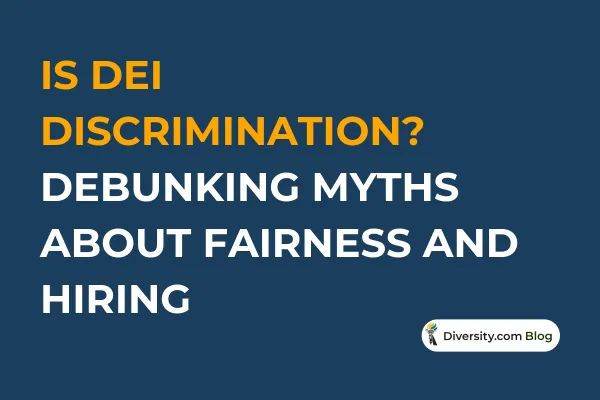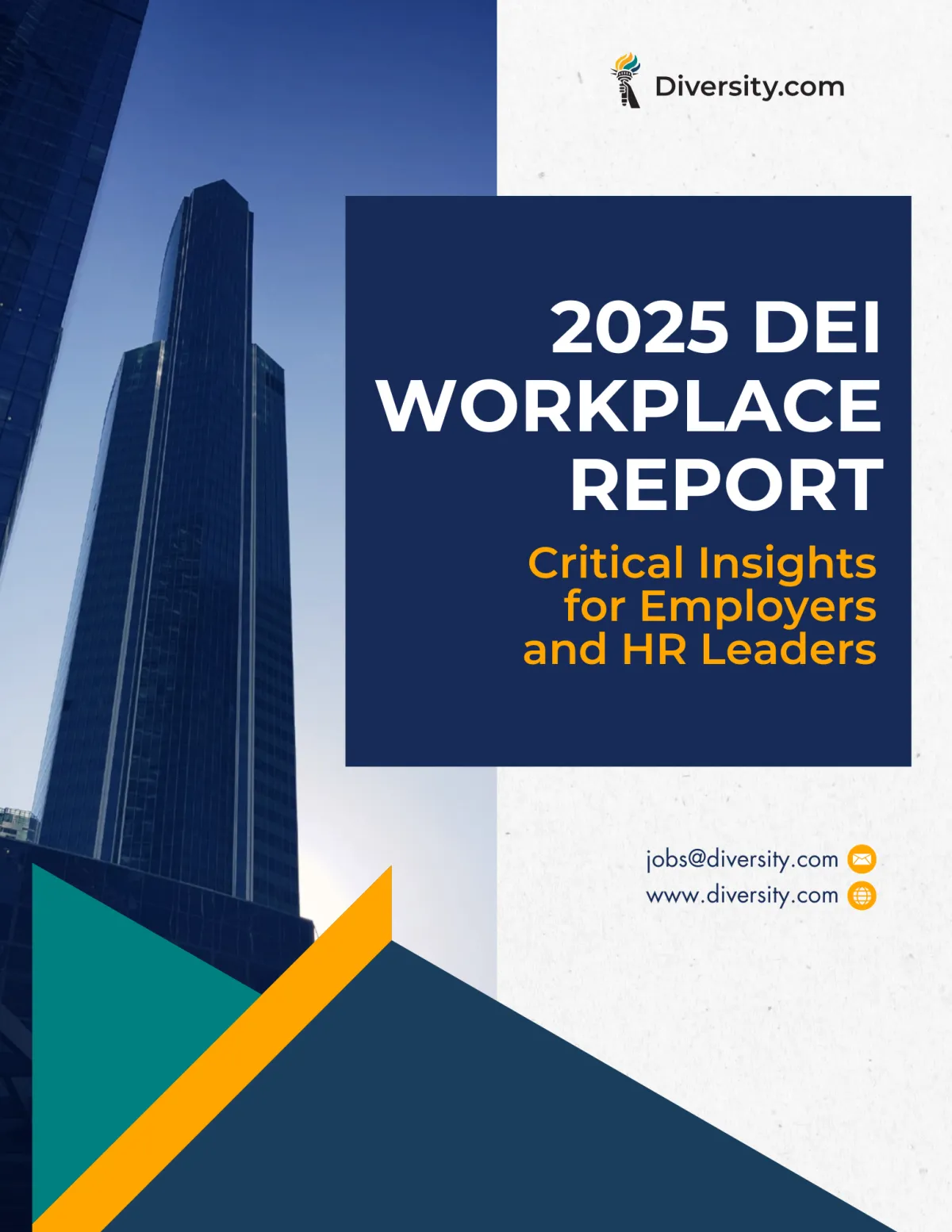
Is DEI Discrimination? Debunking Myths About Fairness and Hiring
Is DEI Discrimination?
No, DEI is not discrimination.
Diversity, equity, and inclusion (DEI) initiatives are designed to expand opportunity—not to exclude qualified candidates.
While public debate has intensified in recent years, the legal foundations of DEI remain clear: employers cannot make decisions based solely on race or gender, but they can take steps to reduce bias, improve representation, and ensure fairness in hiring and workplace culture.
What DEI Really Means
DEI is about removing systemic barriers, not creating new ones. It focuses on identifying and addressing inequities that prevent people from fully participating in work, leadership, and decision-making.
Diversity = representation of different identities, backgrounds, and perspectives
Equity = fair access to resources, support, and opportunities
Inclusion = a culture where people feel valued, respected, and able to contribute
DEI doesn’t mean giving jobs to unqualified people. It means making sure that qualified people from underrepresented backgrounds aren’t unfairly filtered out—whether through biased algorithms, hiring panels, or outdated norms.
DEI vs. Discrimination: What the Law Says
U.S. employment law, including Title VII of the Civil Rights Act, prohibits discrimination based on race, gender, religion, and other protected categories.
However, it allows employers to take proactive steps to ensure fair treatment and reduce structural bias.
For example:
Conducting pay equity audits is not discriminatory—it’s risk management.
Targeting outreach to historically underrepresented groups is legal, as long as final hiring decisions remain merit-based.
Legal experts note that courts have consistently upheld DEI strategies that improve access without creating rigid quotas or excluding others based on identity alone (American Bar Association, 2024).
Common DEI Myths and Misconceptions
Myth: DEI means lowering standards.
Reality: DEI is about broadening access and removing unfair barriers, not about reducing qualifications.
Myth: DEI is reverse discrimination.
Reality: Proactive inclusion efforts are legal and necessary—so long as they don’t cross into exclusion based solely on identity.
Myth: DEI is just about race or gender.
Reality: DEI also addresses age, disability, LGBTQ+ inclusion, veterans, socioeconomic background, and more.
Myth: DEI requires quotas.
Reality: Quotas are illegal in most hiring scenarios. Metrics and representation goals are not the same as quotas.
The Role of DEI in Fair Hiring
DEI helps ensure that fairness is built into hiring from the start:
Inclusive job descriptions that avoid biased language
Structured interviews that reduce subjectivity
Bias interruption tools during resume reviews
Equity-focused metrics to track representation and process fairness
DEI doesn’t replace merit. It strengthens the systems we use to recognize it.
FAQ
Does DEI mean quotas?
No. Setting representation goals or tracking diversity metrics is legal. Quotas—rigid numerical hiring mandates based on identity—are generally illegal in U.S. employment law.
Can DEI hurt non-minority candidates?
No. DEI aims to level the playing field, not tilt it. As long as hiring decisions are based on skills and performance, inclusive practices benefit everyone.
How Diversity.com Helps Build Inclusive and Safer Workplaces
At Diversity.com, we help organizations and job seekers connect through inclusive job opportunities, accessible tools, and evidence-based DEI strategies.
Whether you're building your hiring pipeline or exploring workplaces that value diversity, we’re here to support you every step of the way.
For Employers & HR Leaders:
✔ Post on a Diversity Job Board — Reach a wide pool of underrepresented talent through our inclusive and DEI-focused listings.
✔ Access DEI Hiring Resources — Stay current on inclusive hiring practices, policy updates, and accessibility strategies.
✔ Build a Culture of Psychological Safety — Learn how to lead with inclusion and retain diverse teams through transparency and trust. Join our growing community.
For Job Seekers:
✔ Find Diversity and Inclusion Jobs — Explore companies committed to equitable practices, access, and belonging.
✔ Strengthen Your Job Search Profile — Discover how to highlight your skills, values, and lived experiences in ways that resonate.
✔ Learn How to Thrive at Work — Get insights on navigating workplace safety, identity, and authenticity in today’s evolving world..
Every job search and every hire shapes the future of work.
Start building with Diversity.com and help create a more inclusive workplace for all.
Need help? Contact Us Here. Our team is ready to support you.
Related Articles
Why Isn’t Anyone Hiring? Understanding the Current Job Market Slowdown
When Will Diversity Affect the Workplace? What to Expect in 2025 and Beyond
Why Is Diversity Good? The Real Benefits of Diversity and Inclusion at Work
Beyond Pride: Four Overlooked June Observances Every Workplace Should Honor
Disability Pride Month 2025: A Guide to Workplace Inclusion and Culture
Debunking the Myth: DEI Doesn’t Mean Lowering Hiring Standards
Real DEI in Action: Case Studies from the Workplace And What Changed in 2025
The Silent Retreat: Understanding the Decline of DEI Roles in Corporate America
Sources & References
American Bar Association. (2024). Legal landscape of DEI: One year after the Harvard/UNC decision. https://www.americanbar.org
Jackson Lewis. (2025). Post-EO DEI Assessments: What are they and why should you do them? https://www.jacksonlewis.com
EEOC. (2024). Best practices for employers: Diversity, equity, inclusion and compliance. https://www.eeoc.gov
Labor & Employment Law Blog. (2025). New EEOC guidance on DEI compliance. https://www.laboremploymentlawblog.com

